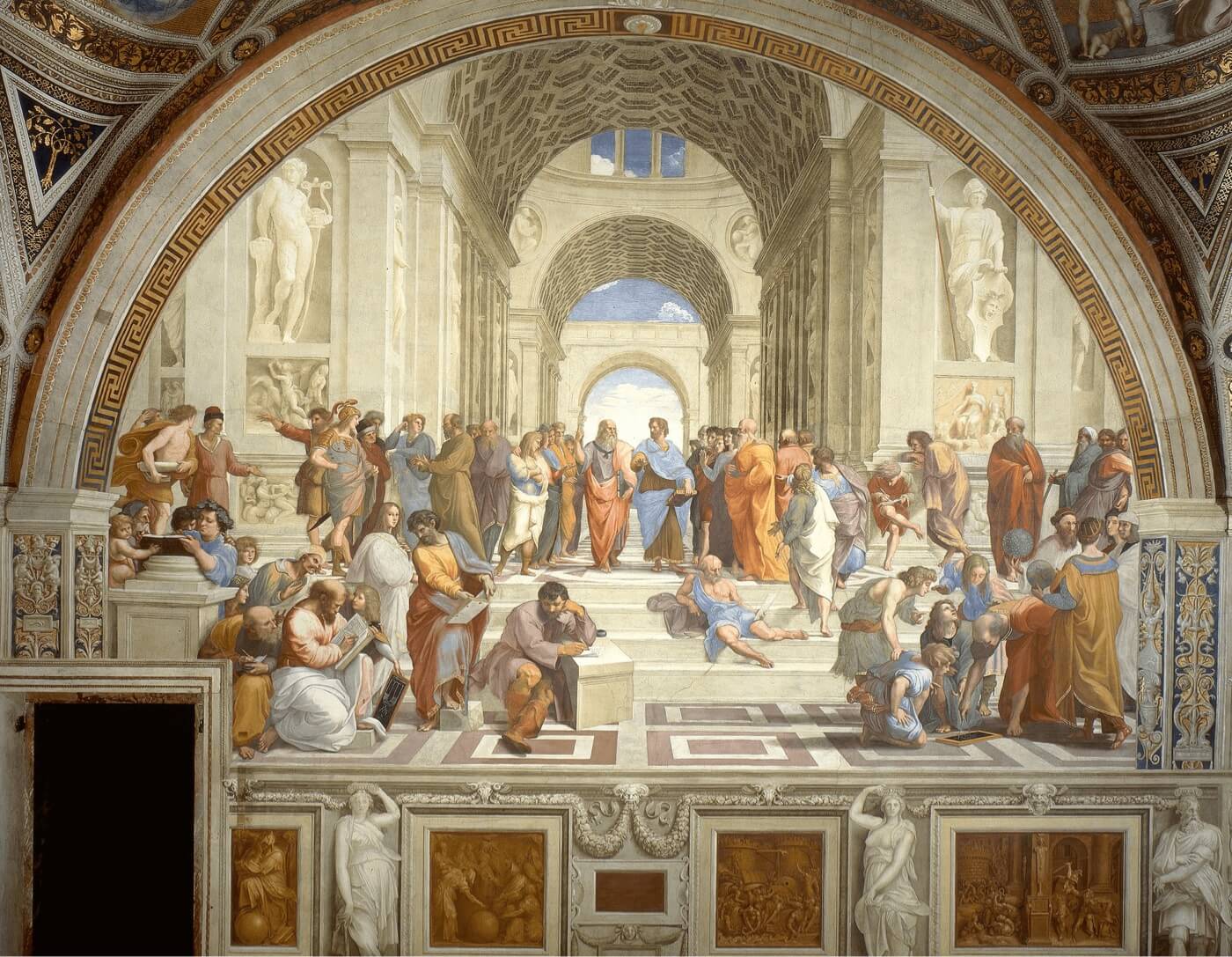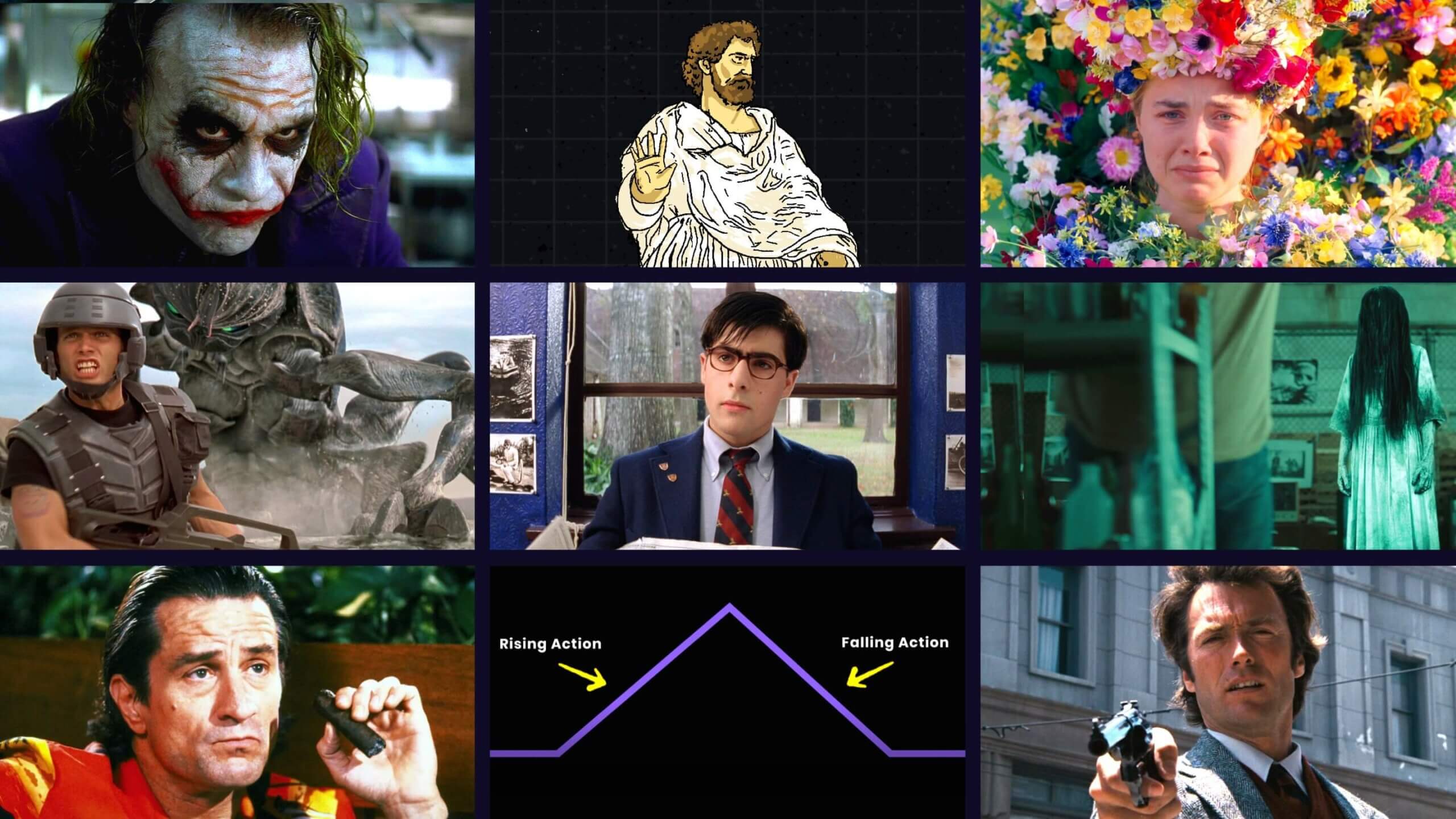Aristotle’s Poetics is a foundational work of dramatic theory that outlines the fundamental principles of effective storytelling. Through his study of Greek tragedies, Aristotle identified key features as essential elements to evoke emotion within an audience and achieve a cathartic experience. By understanding Aristotle’s ideas on poetics, writers can create powerful stories that move and inspire audiences.
What is Aristotle’s Poetics?
What's the purpose of Aristotle’s Poetics
By analyzing thought through Aristotle's Poetics, writers can better craft stories that captivate their readers and leave lasting impressions. Before diving into the details of the key elements, let’s take a quick look at Aristotle’s Poetics.
ARISTOTLE’S POETICS DEFINITION
What is Aristotle’s Poetics?
Aristotle's Poetics is a treatise on the art of literature written in c. 330 BC. In it, Aristotle focuses on the principles of poetry and drama, outlining what makes effective storytelling and structuring plays and stories to be more meaningful and engaging.
The importance of the Poetics lies in its foundational nature; it established benchmarks for effective storytelling that still shape narrative structures today. For instance, Aristotle's deconstruction of plot structure into beginning, middle, and end is still widely used in writing fiction or non-fiction works today.
Aristotelian 6 Elements of Drama:
- Plot
- Character
- Thought
- Diction
- Spectacle
- Song
When was Aristotle's Poetics Written Originally?
Who is Aristotle?
Aristotle (384-322 BC) was a Greek philosopher and scientist who is regarded as one of the most influential figures in Western philosophy. Aristotle was a student of Plato, the preeminent Greek philosopher of the time. He spent nearly two decades as a student at Plato's Academy, where he studied philosophy and science.
Aristotle developed his own theories in response to those of his mentor, while still holding true to some of Plato's key ideas. As such, Aristotle is often referred to as the “student” or the "disciple" of Plato.
Aristotle’s works on philosophy, physics, ethics, biology, logic, and poetics have had an enduring impact on many fields of study.

The School of Athens by Rafael • Plato and Aristotle
One of his lasting contributions to literature is his work on 'poetics,' which considers how literature should be structured for maximum effect.
Aristotle's influence on literature today is still profound. His Poetics has been used as a guide for creating effective stories and constructing effective characters. His ideas about characterization, plot structure, and style have shaped the way many authors approach writing.
Additionally, Aristotle's approach to spectacle or thought-provoking ideas still influences many works of fiction and non-fiction alike, challenging readers to think more critically about the world around them.
In Poetics, Aristotle outlined six main elements that should be present in any artistic work in order to make it successful: plot/structure, characterization, diction/style, spectacle, song, and thought provoking ideas. Let’s dive and take a closer look at each of these six main elements.
Aristotle Poetics Summary
Plot and structure
According to Aristotle, plot is the most important element of a story or drama — it is what ties all of the components together and allows us to follow the narrative. He defines plot as "the arrangement of incidents" within a story. Aristotle stresses that plots should be structured logically and in a manner that follows a beginning, middle, and end.
Thus, we have the fundamental basis for what we know understand as Three-Act Structure. For a full breakdown, here's K.M. Weiland breaking down one of the best examples — Jurassic Park.
Three-Act Structure in Jurassic Park • Subscribe on YouTube
This can be found in storytelling throughout literature and cinema. For example, in the The Usual Suspects screenplay, intricate and specific plot points based on the crime and investigation move the narrative along. This is integral to the investment the audience has in the story.

What is Aristotle's poetics • Film example
This traditional structure allows for dramatic tension to increase as we progress through the story so that by the time we reach the climax our interest in the narrative is at its peak.
Moreover, he believes that characters should be developed deeply so that their decisions have meaning and consequence to both themselves and other characters within the narrative.
This gives us an emotional investment in both the outcome of the plot and character development. This leads us to the next element — characterization.
Related Posts
Aristotle Poetics Summary
Characterization
Aristotle states that characters should be developed deeply so they appear more lifelike and believable to the audience. Characterization involves giving a character personality traits, emotions, motivations, values, and goals that will shape how they view the world and how they act within it.
Here's our breakdown of characterization and the differences between direct characterization and indirect characterization.
Characterization Explained • Subscribe on YouTube
By doing this, Aristotle argues, audiences can relate and empathize with a character on an emotional level which is essential for any story to be engaging. This is especially key when working with arguably unlikeable characters and anti hero characters.
A great example of this is the iconic Travis Bickle from one Martin Scorsese’s best films Taxi Driver (light spoilers ahead).
In the end of the film, Travis’ rage and dread releases in a violent wrath. Prior to this, the film allows us to relate to Travis and what we might have in common with him such as his desire for love and connection, his disdain for an immoral society, perhaps even his work ethic. Despite Travis essentially unraveling into a mania of rage, we still care about him.
How Scorsese Directed De Niro in the Iconic Taxi Driver Scene • Subscribe on YouTube
According to Aristotle, characters also need to be consistent throughout the narrative in order to give a sense of continuity and understanding of a character's decisions and actions.
Moreover, characterization can also help build suspense as we are able to anticipate what choices a character may make in key moments.
ARISTOTLE POETICS SUMMARY
Thought
Thought-provoking ideas refer to concepts presented in the story that challenge an audience's assumptions about the world by prompting them to think more deeply about what they are reading.
In essence, these ideas provoke readers to consider different perspectives and reflect on their own beliefs. Another way to understand Aristotle's concept of thought is what called "theme."
Thought = theme
The Godfather explores concepts and themes of morality, family, and loyalty. Sometimes, the primary story of a film is the exploration of these thoughts such as in Richard Linklater’s Before Sunrise or Kevin Smith’s Clerks.

Clerks • Poetics examples
This type of engagement with literature allows for a unique experience for each individual reader and helps create an enjoyable experience overall.
Aristotelian 6 Elements of Drama
Diction and style
According to Aristotle's Poetics, diction and style refer to the use of language in order to convey meaning. Aristotle suggests that a writer should use simple, straightforward language that is appropriate for the tone and atmosphere of the story. He also argues that metaphors and other literary devices can be used to enhance the value of a work.
How writers use metaphors in their diction
Within literature, style and diction create a pace that can carry a reader through a story. For example, Ernest Hemingway’s dynamic and selective writing style has become iconic. Why? Its focus is on both being effective with word choice and efficient in how many words are needed to express an idea.
The result is a writing style that complements has adventurous, world building, pace of life stories. Check out this video further analyzing Hemingway’s writing style and its effects on his storytelling.
What is aristotle's poetics • Ernest Hemingway example
Style describes how words are arranged into sentences and paragraphs in order to create an effect on the reader. Aristotle suggests that writers should structure their sentences in such a way that they lead up to important moments or reveal thematic elements. This creates suspense and helps engage readers with the narrative.
Aristotle Poetics Summary
Spectacle & Song
According to Aristotle, spectacle and thought-provoking ideas are key components of narrative. Spectacle is defined as the use of visual or audial elements to convey a story or idea.
Such elements can include scenes, costumes, settings and music that help paint a vivid picture of the story and its environment.
In The Godfather, director Francis Ford Coppola uses all elements of spectacle to create an unforgettable story. The film itself opens with the use of spectacle of Don Corleone’s daughter’s wedding day. Throughout the film acts of violence and the world of organized crime draw in.
The Godfather • Spectacle in Poetics
Song itself was a separate idea Aristotle explored, but in many ways can be the auditory form of spectacle. Think about the film score of The Godfather. The iconic sound has undoubtedly been burned in cinephile’s brains forever.
Aristotle's Poetics continue to be a cornerstone of dramatic theory, offering insight into the craft of storytelling. By utilizing key elements such as plot, character, thought, diction, music and spectacle, writers can create powerful stories that move and inspire audiences. Aristotle's ideas on poetics provide an invaluable framework for writers to hone their craft and create meaningful works of art.
UP NEXT
What are the Rhetorical Appeals?
Aristotle’s Poetics have continued to have a strong influence on both fictional and non-fictional storytelling. When it comes to the world of rhetoric, Aristotle’s rhetorical appeals have retained a similar influence. Learn more about these rhetorical appeals in our next article.
